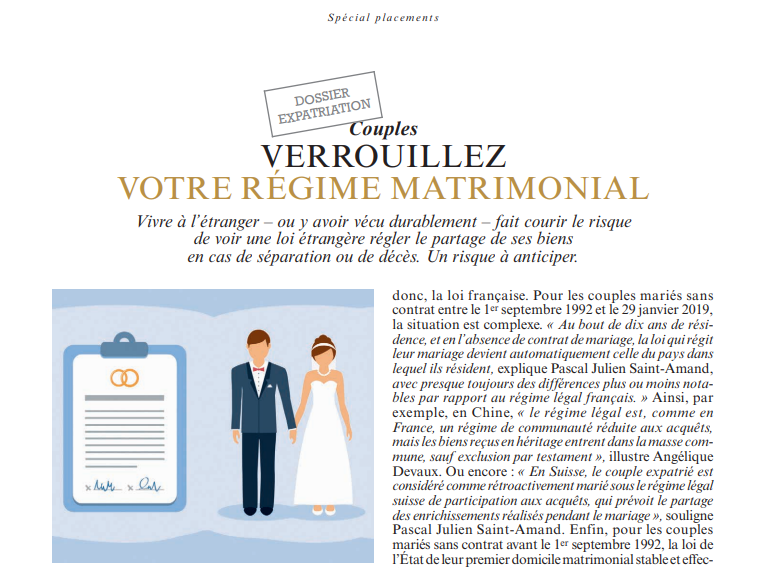Under French domestic tax rules (Article 750 ter of the General Tax Code (CGI)), gifts and inheritances are taxable in France when at least one of the following conditions is met:
- The donor/deceased is domiciled in France for tax purposes (Article 750 ter 1)
- The assets are located in France (Article 750 ter 2)
- The donee/heir is a tax resident of France and has been domiciled there for at least six of the ten years preceding the year in which the assets are received (Article 750 ter 3)
In order to limit cases of double taxation, French domestic law allows duty on transfers without valuable consideration paid abroad to be offset against duties payable in France, up to the amount of tax paid on assets located outside France (Article 784 A).
Sometimes the tax base is not the same in the two countries, which raises the question of how to offset duties paid abroad.
Thus, for example, a gift made by a tax resident of Switzerland (Canton of Vaud) to a tax resident of France (within the meaning of Article 750 ter 3) relating to the bare ownership of an asset located outside France (in this case the bare ownership of securities in a Luxembourg company) would be taxable in France (donee’s residence) and in Switzerland (donor’s residence).
It is then possible to offset the gift tax paid in Switzerland against the tax payable in France under Article 784 A of the aforesaid CGI. The offsetting of duty is limited to duty payable on assets located outside France (in this specific case, duty payable in Switzerland on assets located in Luxembourg). However, the tax base in Switzerland for such a gift of bare ownership is the full ownership value of the asset, while the tax base in France is the value of the bare ownership transferred.
There are two possible approaches:
- In the first approach, since the duties paid in Switzerland are based on the full ownership value, whereas those payable in France are calculated on the bare ownership, the offsetting can only relate to the fraction of the duties paid in Switzerland relating to the value of the bare ownership. A pro rata amount would then have to be calculated.
- In the second approach, whether analysed from the Swiss or French side, the transfer relates to the bare ownership of the asset, regardless of the calculation method used. Consequently, all of the duty payable in Switzerland in respect of this transfer of bare ownership can be offset against the duty payable in France (regardless of the fact that the Vaud tax rules provide for a calculation based on the full ownership value in this case).
In a ruling by the Paris Court of Appeal (26/05/2025), the judges adopted the second analysis and deemed that Article 784 A of the CGI: “justifies taking into account, for offsetting purposes, the amount of tax paid as a result of the transfer of assets located abroad, regardless of the method of calculation”.
This ruling has confirmed the possibility for taxpayers to offset all the duties paid to the Vaud administration against those payable to the French administration, without applying a ratio.
This taxpayer-friendly position is consistent and reassuring. It could be applied to gifts of bare ownership made in a Franco-Belgian context (Belgian resident giving bare ownership of assets located outside France to a French tax resident).
If the French tax authorities appeal to the Court of Cassation, let us hope that the highest court confirms this analysis, which seems to us to comply with both the letter and the spirit of Article 784 A.
Link to the decree: https://www.courdecassation.fr/decision/683547217e87f966fe0214f4
By Pascal JULIEN-SAINT-AMAND & Guillaume ETAIN, Althémis Paris – France






